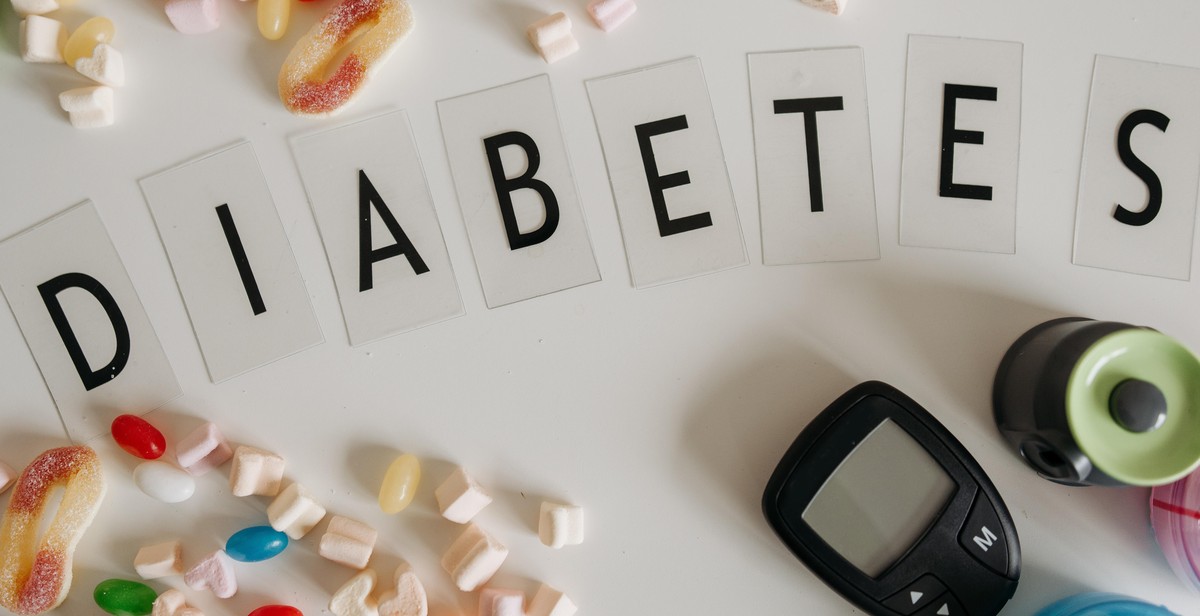Introduction: Love and Health
As a love and relationships psychology guru, I have spent years studying the impact of love on our well-being. Through my personal experience, I have come to realize that the connection between love and health is undeniable.
When we talk about love, we often think about the emotional and romantic aspects of it. However, love is much more than that. It has a profound impact on our physical, emotional, and mental health.
My Personal Experience with the Connection Between Love and Health
Personally, I have experienced the positive effects of love on my health. When I am in a loving relationship, I feel more fulfilled and happier. I am less stressed, and my overall well-being is improved.
On the other hand, when I am not in a loving relationship, I tend to feel more anxious and stressed. My physical health suffers, and I am more susceptible to illnesses.
My personal experience is just one example of the many ways love impacts our health. In this article, we will explore the science behind the connection between love and health and how it affects us in different ways.
What does the research say?
Studies have shown that love can have a positive impact on our immune system, blood pressure, and mental health. It can also help us live longer and happier lives.
So, whether you are in a loving relationship or not, understanding the impact of love on your health is crucial. Let’s dive into the research and explore the fascinating connection between love and health.

The Science Behind Love and Health
Love is not just a feeling, it’s a biological process that impacts our mental and physical health. When we fall in love, our brain releases a flood of feel-good hormones, including dopamine, oxytocin, and serotonin. This chemical reaction creates a sense of euphoria and happiness, which is why falling in love can feel so intoxicating.
The Release of Feel-Good Hormones
Dopamine is a neurotransmitter that is associated with pleasure and reward. It is released when we experience something pleasurable, like eating our favorite food or spending time with loved ones. When we fall in love, our brain floods with dopamine, which creates a sense of pleasure and happiness. Oxytocin, also known as the “cuddle hormone,” is released during physical touch and emotional bonding. It helps to create a sense of attachment and trust between partners. Serotonin is another feel-good hormone that is associated with happiness and well-being. It is released during positive social interactions, like spending time with loved ones.
Reduced Stress and Anxiety
Love can also help to reduce stress and anxiety. When we are in a loving relationship, we feel supported and cared for, which can help to reduce feelings of stress and anxiety. Studies have shown that people in loving relationships have lower levels of cortisol, the stress hormone, in their bodies. This can lead to a lower risk of stress-related health problems, like high blood pressure and heart disease.
Lower Risk of Heart Disease
In addition to reducing stress, love can also help to lower the risk of heart disease. Studies have shown that people in loving relationships have a lower risk of heart disease and other cardiovascular problems. This may be due to the fact that love helps to reduce stress and anxiety, which are both risk factors for heart disease. Additionally, the feel-good hormones released during love can help to lower blood pressure and improve heart health.
Improved Immune System
Love can also have a positive impact on the immune system. Studies have shown that people in loving relationships have stronger immune systems than those who are not. This may be due to the fact that the feel-good hormones released during love can help to boost the immune system. Additionally, people in loving relationships tend to take better care of themselves, which can also lead to improved immune function.
| Benefits of Love and Health: | |
|---|---|
| The release of feel-good hormones | Reduced stress and anxiety |
| Lower risk of heart disease | Improved immune system |
- Dopamine is a neurotransmitter that is associated with pleasure and reward.
- Oxytocin, also known as the “cuddle hormone,” is released during physical touch and emotional bonding.
- Serotonin is another feel-good hormone that is associated with happiness and well-being.
In conclusion,
Love has a powerful impact on our mental and physical health. The release of feel-good hormones, reduced stress and anxiety, lower risk of heart disease, and improved immune system are just a few of the many benefits of love. By nurturing our relationships and cultivating love in our lives, we can improve our overall well-being and lead happier, healthier lives.

The Power of Emotional Support
Having a support system is crucial for maintaining good mental health and overall well-being. It is important to have people in our lives who can provide us with emotional support during difficult times. Emotional support can come in many forms and can be provided by family, friends, or even a significant other.
The Importance of a Support System
A support system can help individuals cope with stress, anxiety, and depression. It can also provide a sense of belonging, which is essential for mental health. A support system can be especially helpful during major life changes such as a breakup, job loss, or the death of a loved one.
Studies have shown that individuals who have a strong support system tend to have better mental health outcomes. They are less likely to experience symptoms of depression and anxiety, and they are more likely to have a positive outlook on life.
The Role of Love in Providing Emotional Support
Love can be a powerful source of emotional support. When we feel loved, we feel validated and supported. Love can come in many forms, including romantic love, familial love, and platonic love.
When we are in a romantic relationship, our partner can provide us with emotional support during difficult times. They can be there to listen to us, offer advice, and provide a shoulder to cry on. In a healthy relationship, both partners should feel comfortable seeking emotional support from each other.
Familial love can also be a powerful source of emotional support. Our family members are often the people who know us best and can provide us with unconditional love and support. They can be there for us during difficult times and offer a sense of security and stability.
Finally, platonic love can also be a valuable source of emotional support. Our friends are often the people we turn to during difficult times. They can offer a different perspective, provide a listening ear, and offer a sense of companionship.
Conclusion
Overall, having a support system is essential for maintaining good mental health and overall well-being. Love can be a powerful source of emotional support, and it is important to cultivate healthy relationships with those around us.

Healthy Relationship Habits
Love is a vital component of our overall well-being. However, it is not enough to simply be in love. To maintain a healthy and fulfilling relationship, it is important to develop and practice healthy relationship habits. Here are some of the most important habits that I have learned through personal experience and my expertise in love and relationships psychology:
Communication
Effective communication is the backbone of any healthy relationship. Both partners should feel comfortable expressing their thoughts, feelings, and concerns openly and honestly. It is important to actively listen to your partner and show empathy towards their perspective. Avoid interrupting or dismissing their feelings, as this can undermine the trust and respect in the relationship. Regular communication helps couples to work through conflicts and strengthen their emotional connection.
Intimacy
Intimacy is more than just physical attraction. It involves emotional and psychological closeness, as well as a willingness to be vulnerable with one another. Regular physical intimacy is important, but it should always be accompanied by emotional intimacy. It is important to prioritize quality time together, and to engage in activities that promote emotional bonding. This could be as simple as cooking a meal together or taking a walk in the park. Regular intimacy helps couples to maintain a strong emotional connection and reinforces the love and trust in the relationship.
Trust
Trust is the foundation of any healthy relationship. Both partners should feel confident that they can rely on one another and that their partner has their best interests at heart. Trust is built through consistent and reliable behavior, open communication, and honesty. It is important to avoid behaviors that undermine trust, such as lying, cheating, or hiding information. Regularly demonstrating trustworthiness helps to reinforce the security and stability of the relationship.
Respect
Respect is essential for maintaining a healthy and fulfilling relationship. Both partners should feel valued and appreciated for who they are. It is important to avoid criticism, belittling, or controlling behavior. Instead, focus on positive reinforcement and showing appreciation for your partner’s strengths and qualities. Regularly demonstrating respect helps to build a strong foundation of trust and love in the relationship.
Overall, developing and practicing healthy relationship habits is essential for maintaining a fulfilling and satisfying love life. Effective communication, intimacy, trust, and respect are the building blocks of a healthy relationship. By prioritizing these habits, couples can strengthen their emotional connection and reinforce the love and trust in their relationship.

Conclusion
Love is a powerful force that can greatly impact our overall well-being. As a love and relationships psychology guru, I have seen firsthand the transformative power of love in people’s lives. Love can improve our physical health, mental health, and even extend our lifespan.
It is essential that we prioritize love and relationships in our lives. This means investing time and effort into building and maintaining healthy relationships with our partners, family, and friends. We should also strive to cultivate self-love and self-compassion, as these are foundational to our well-being.
Unfortunately, in today’s fast-paced world, it is easy to neglect our relationships and focus solely on career or other pursuits. However, we must remember that our relationships are the backbone of our lives and provide us with the support and love that we need to thrive.
So, whether you are in a committed relationship or single, make a conscious effort to prioritize love in your life. This can mean scheduling regular date nights with your partner, spending quality time with friends and family, or simply taking time each day to practice self-love.
Remember, love is not just a fleeting emotion, but a fundamental aspect of our well-being. By prioritizing love and relationships, we can lead happier, healthier, and more fulfilling lives.
